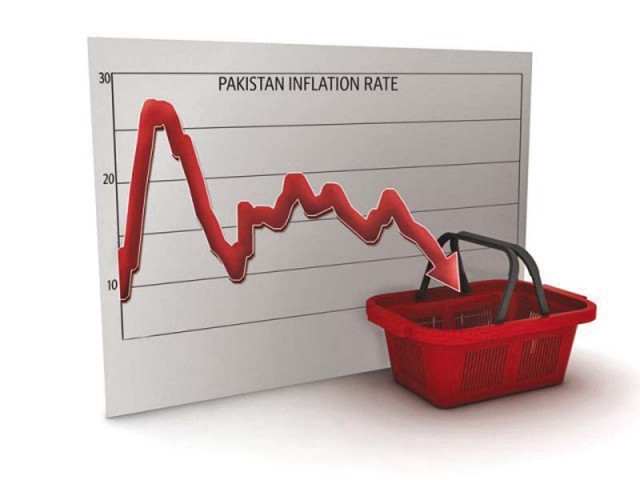Weekly inflation falls for first time in seven years
SPI drops 0.9% YoY, influenced by lower prices of essential commodities

For the first time in nearly seven years, Pakistan's weekly Sensitive Price Indicator (SPI) recorded a year-on-year (YoY) decline as the index dropped 0.9% for the week ended March 6, 2025.
The decrease was driven by lower prices of essential commodities, including onions, tea, garlic, tomatoes and pulses, alongside a slight drop in petrol and diesel rates.
On a week-on-week (WoW) basis, the SPI registered a marginal decline of 0.09%, reflecting continued easing of inflationary pressures, although the buying power of the masses remained strained.
Analysts attributed the decline in inflation to improved supply chains, stable fuel prices and government interventions in key sectors, which offered relief to consumers amid economic challenges.
"After approximately seven years, Pakistan's weekly SPI turned negative on a YoY basis, registering a decline of 0.9% for the period ended March 6, 2025," Topline Securities said.
The WoW decrease of 0.09% was mainly driven by lower prices of key commodities such as onions (-5.59%), Lipton tea (-4.47%), garlic (-3.89%), tomatoes (-3.60%), pulse gram (-3.49%), pulse mash (-2.82%), potatoes (-2.60%), diesel (-2%), pulse masoor (-1.50%) and petrol (-0.24%).
Conversely, a notable increase was observed in prices of bananas (+9.79%), sugar (+3.15%), LPG (+2.64%), eggs (+2.52%), lawn fabric (+0.55%), mutton (+0.33%), wheat flour (+0.22%), long cloth and gur (+0.17% each), cigarettes and beef (+0.06% each) and Irri-6/9 rice (+0.01%).
During the week, out of 51 essential items, the prices of 13 items (25.49%) increased, 20 items (39.22%) decreased while 18 items (35.29%) remained stable.
On a YoY basis, the SPI recorded a 0.87% decrease, primarily due to a significant reduction in prices of onions (64.92%), tomatoes (57.05%), wheat flour (36.81%), chilli powder (20%), Q1 electricity charges (18.92%), Lipton tea (14.92%), pulse mash (14.68%), pulse masoor (12.33%), diesel (9.91%), broken Basmati rice (9.55%), petrol (8.55%) and LPG (2.54%).
However, some commodities saw a sharp increase in prices over the previous year. These included ladies' sandals (75.09%), bananas (30.96%), pulse moong (26.90%), powdered milk (25.86%), beef (22.51%), pulse gram (21.73%), 1kg vegetable ghee (16.12%), 2.5kg vegetable ghee (14.32%), shirting fabric (14.13%), eggs (13.52%), firewood (11.07%) and georgette fabric (10.89%).
In February 2025, the monthly Consumer Price Index (CPI) recorded a YoY increase of 1.5%, marking the lowest inflation rate since September 2015. This reflected a decline from 2.4% YoY recorded in January 2025.
On a month-on-month basis, the CPI decreased 0.9%, primarily driven by lower food prices, which dropped 2.77%. Other notable declines were observed in housing (-0.36%) and transport (-0.30%) sectors.
With this, the eight-month (Jul-Feb) average inflation for FY25 stood at 5.85%, a significant drop from 27.96% recorded in the same period of FY24, according to data compiled by Arif Habib Limited.



















COMMENTS
Comments are moderated and generally will be posted if they are on-topic and not abusive.
For more information, please see our Comments FAQ